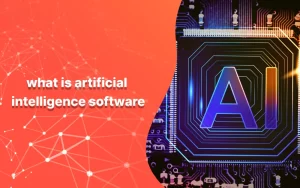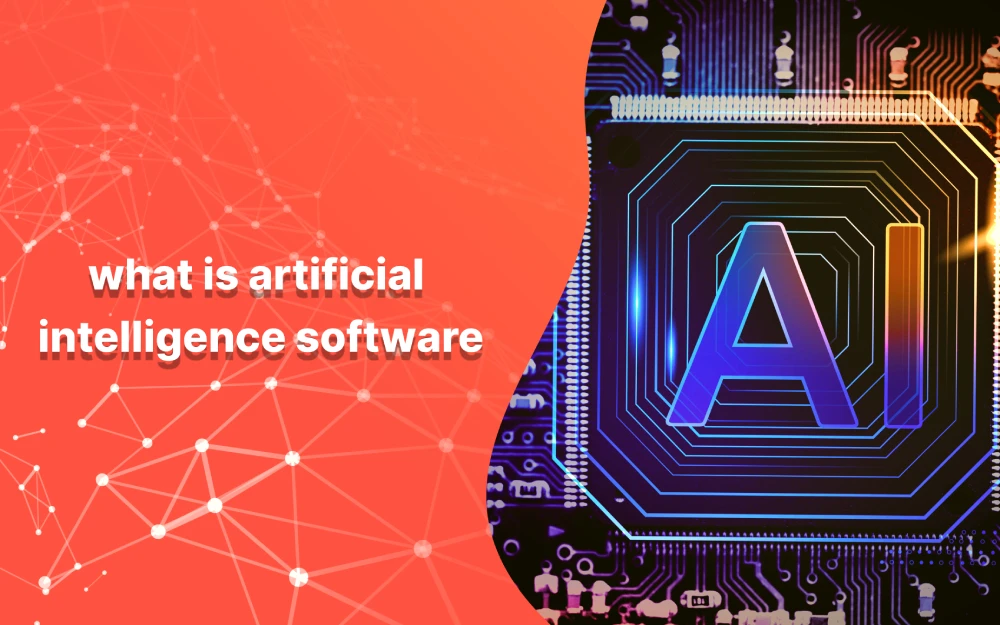What is artificial intelligence software?
Artificial Intelligence (AI) software refers to computer programs and algorithms that are designed to simulate or replicate human intelligence and perform tasks that typically require human intelligence. AI software utilizes various techniques, such as machine learning, natural language processing, computer vision, and expert systems, to enable computers to understand, reason, learn, and make decisions.
Here are some common types of AI software:
1. Machine Learning Software:
Machine learning software enables computers to learn from data and improve their performance without being explicitly programmed. It uses algorithms that analyze and identify patterns, make predictions, or classify data based on training examples. Popular machine learning libraries and frameworks include Tensor Flow, PyTorch, Scikit-learn, and Keras.
2. Natural Language Processing (NLP) Software:
NLP software focuses on understanding and processing human language. It enables computers to interpret, analyze, and generate human language in textual or spoken form. NLP software is used in applications such as chatbots, language translation, sentiment analysis, and speech recognition. Common NLP libraries include NLTK, SpaCy, and Stanford NLP.
3. Computer Vision Software:
Computer vision software enables computers to understand and interpret visual information from images or videos. It involves tasks like object detection, image recognition, facial recognition, and image segmentation. Popular computer vision libraries and frameworks include OpenCV, TensorFlow Object Detection API, and PyTorch vision.
4. Expert Systems:
Expert systems are AI software designed to mimic the decision-making capabilities of human experts in specific domains. They utilize a knowledge base and a set of rules or algorithms to reason and provide expert-level advice or solutions. Expert systems are commonly used in fields such as medicine, finance, and engineering.
5. Robotic Process Automation (RPA) Software:
RPA software automates repetitive and rule-based tasks by mimicking human interactions with software systems. It can perform tasks like data entry, form filling, and data extraction. RPA software often uses AI techniques like computer vision and natural language processing to interact with user interfaces and manipulate data.
6. Chatbot and Virtual Assistant Software:
Chatbot and virtual assistant software uses AI techniques to simulate human-like conversations and provide automated assistance. They can understand user queries, provide information, perform tasks, and engage in interactive conversations. Examples of popular chatbot platforms include Dialog flow, Microsoft Bot Framework, and IBM Watson Assistant.
7. Recommendation Systems:
Recommendation systems use AI algorithms to analyze user preferences and behaviors to provide personalized recommendations. They are commonly used in e-commerce, streaming platforms, and content recommendation. Examples include collaborative filtering, content-based filtering, and hybrid recommendation systems.
These are just a few examples of AI software. AI is a rapidly evolving field, and there are numerous specialized AI software tools and libraries available for various applications and domains. AI software plays a crucial role in automating tasks, making predictions, analyzing data, and enhancing decision-making processes across a wide range of industries.
What is a quality control specialist ?

Artificial intelligence software importance:
Artificial intelligence (AI) software holds significant importance across various domains and industries. Here are some key reasons why AI software is important:
1. Automation and Efficiency: AI software enables automation of tasks that were previously performed manually, leading to increased efficiency and productivity. By automating repetitive and mundane tasks, organizations can free up human resources to focus on higher-value activities.
2. Data Analysis and Insights: AI software can analyze vast amounts of data quickly and accurately, extracting valuable insights and patterns that may not be easily identifiable by humans. This enables data-driven decision-making, improved forecasting, and better understanding of customer behavior, leading to more informed strategies and actions.
3. Personalization and Customer Experience: AI software powers recommendation systems, chatbots, and virtual assistants that offer personalized experiences to users. By understanding individual preferences and behaviors, AI software can deliver tailored recommendations, provide instant support, and enhance overall customer satisfaction.
4. Enhanced Decision Making: AI software can process complex data sets, perform advanced analytics, and generate insights to support decision-making processes. By considering multiple variables and scenarios, AI software can provide recommendations and predictions that aid in making more accurate and informed decisions.
5. Improved Efficiency and Cost Reduction: AI software can optimize processes, identify bottlenecks, and streamline operations, leading to improved efficiency and cost reduction. AI-powered systems can identify areas of waste, optimize resource allocation, and minimize errors, resulting in significant cost savings for organizations.
6. Enhanced Safety and Security: AI software plays a vital role in enhancing safety and security across various domains. It can analyze data in real-time to identify potential risks, detect anomalies, and mitigate threats. AI-powered security systems can monitor environments, identify unauthorized access, and respond proactively to potential security breaches.
7. Advancements in Healthcare: AI software is revolutionizing the healthcare industry, enabling faster and more accurate diagnoses, personalized treatment plans, and improved patient outcomes. AI algorithms can analyze medical images, assist in drug discovery, and provide decision support for physicians, leading to more efficient and effective healthcare delivery.
8. Innovation and Research: AI software fuels innovation by enabling researchers and scientists to explore new frontiers. It can assist in data analysis, simulation, and modeling, facilitating breakthroughs in various fields such as materials science, genomics, and astronomy.
9. Automation of Tedious Tasks: AI software can automate repetitive and tedious tasks, such as data entry, document processing, and quality control inspections. This not only saves time but also reduces the risk of errors and improves overall accuracy and consistency.
10. Future Opportunities: AI software is at the forefront of technological advancements and is expected to play a crucial role in shaping the future. It presents opportunities for new business models, innovative applications, and transformative technologies that can revolutionize industries and drive economic growth.
What Is Full Stack Developer ? Unveiling Skills and Responsibilities
Overall, AI software has immense importance in today’s world by enabling automation, data analysis, personalization, decision making, efficiency, and innovation. It has the potential to transform industries, improve customer experiences, and unlock new possibilities across various domains.
Finding tech jobs in Egypt can be tough. techitopia is a platform where you can get your desired job without any hassle & in less time







